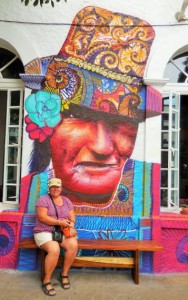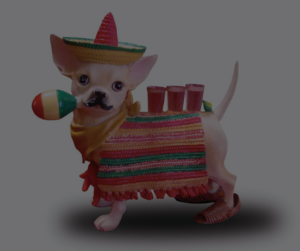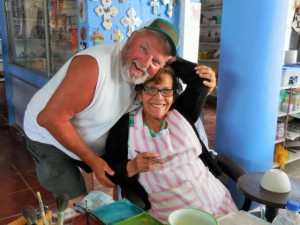
December 8, 2015 – Well we just spent a couple of very pleasurable days on Playa Requeson, Bahia Concepcion on our return northbound. It has been a while since we spent time here, as I recall our 2010 45 Day tour. When we pulled in we parked right next to Bob & Linda, our BC friends we first met on Playa Tecolote years ago. A couple of hours later Steve & Dale should up, they were headed to Mark & Olivia’s place to watch NFL Football. On our way to Requeson we came across an accident, seemed to be a single vehicle, semi with a load of logs. The wind was up on arrival, but not too bad. On our 2nd day we did manage to get both the SUP and Kayak into the ocean, very calm until 11 am. Bob & Linda managed to get some fishing in, Ken & Kathi hosted a wonderful pancake breakfast. We also managed to have a couple of happy hours with the group.
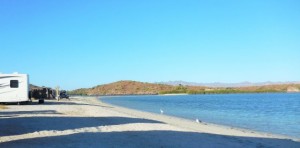
Prior to Requeson we had one night at Puerto Escondido, my friend Lori Winstanley from Surrey politics was there with her husband Ed, we were all invited to the circle of knowledge at 3pm, beer readily available at the Mini-mart. The showers were hot, a first for some years. The sunrise spectacular as ever of the escarpment and the really expensive restaurant still operating, apparently without many customers, sometimes days at a time (how does that work?).
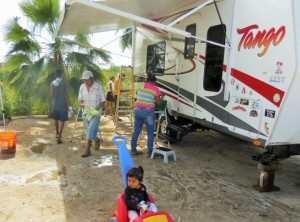
Following our return to La Paz from Rancho Verde because of Sandra, we managed to do all our scheduled excursions. Our stop at Ibarra’s Pottery, the Cemetery Overlook, Downtown Market including the Allende Bookstore and the Malecon. At the end of the day Sandra mostly missed Baja, a fair bit of rain and thunder from Cabo San Lucas to Los Barilles, not much at all in La Paz. Still a good decision to avoid Sandra.
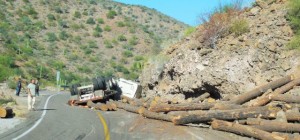
This reversed our direction now heading to Los Cabos, as the tropical storm headed east we headed west to Todos Santos & the Los Cerritos Surf Colony. Sunny skies and humid, after our walkabout thru Todos Santos, the pool at Los Cerritos was a blessing for sure. On our first night we went for dinner at La Pasadita, Jose and family were happy to see us and as always served up a great meal. Day 2 we headed out to the Blanket Factory to see Afrain & Vivian, made some purchases and got info for Afrain’s family on the mainland, we will make a point of visiting them when we are there in February. We finished off our time at Los Cerritos watching the Grey Cup game at the bar. Winnipeg looked cold and Edmonton & Ottawa both put on a good show, very entertatining I thought.
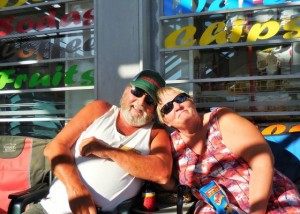
“Free at Last”
We were a few days late but we did finally make it to Cabo San Lucas, good news the humidity and broke and the rain had stopped. Big changes at Villa Serena RV Park, the Ejido had given Julio (living in an old bus with his family) notice to move and Juan was not sure if he was leaving with his family either. To date the Ejidos do not have great track record operating RV Parks, both Los Arcos and Brisa del Mar have been abandoned and empty for years with the Ejido in charge. We will see what the future brings on this front. Already the laundry was now not operational, they unplugged everything because they believed it was too cheap but could not change the vending systems, and apparently an honour system used by other parks could not work.
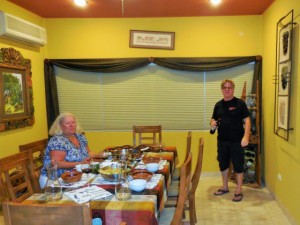
Our stay included dinner at JP’s (Vags), lunch at Latitude 22, a swim at Playa Santa Maria, walk about in San Jose del Cabo, our hosted Happy Hour at Medano, a stop and shop at Artisano and Cabo Glass Factory and Lisa & I went to dinner at Geraldine’s house with Peter. Team Julio did a terrific job washing everything and waxing both our Van & Trailer. We have his contact info in Veracruz will look his family up in January when we are there. What was interesting was the five (5) large RVs, all French Canadians, we also had at Villa Serena. This is the most Quebecer’s we had seen on Baja, I spoke to them and found out they had regularly visited the mainland. Good to see Baja was getting more RV business, 4 of the As were 40’, 1 was 45’, all towing. None have had any problems with the roads. From time to time we get folks on tour that say the road is too narrow for their big RV; really they just need to know how to drive it.
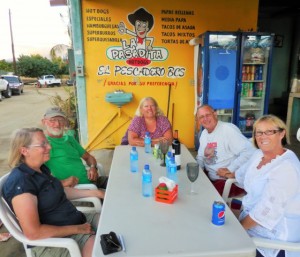
After Cabo we headed back to La Paz for an unscheduled extra night, important that all the tours do the loop at the south and that includes both Hwy 1 and Hwy 19. Juanita at Ibarra’s had completed some new coffee mugs, I was fortunate to purchase the first one with Katrina painted on it. Juanita is a remarkable artist. We also headed off for dinner at Los Magueyes Restaurant, our friends from Tecolote Bill and Marilynn (who also now stay at Campestre Maranatha) we able to join us as well, great evening all around.
Well we are at the Hotel Serenidad now with just over a week left on the tour. Still lots to see and do as the agenda is full to the end. Even more interest his season than last for our Baja tours. We could have filled a 3rd 28 Day February tour had we had Wagon-Masters to lead it. Next season will be better with another trained couple (Jim & Deb from Uncorked Okanagan) we will be offering 7 or 8 28 Day tours in January, February, March of 2017.
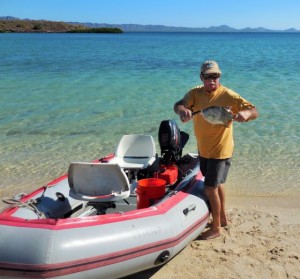
Did you know?
The National Action Party (Spanish: Partido Acción Nacional, PAN) was founded in 1939, and since the 1980s has been an important political party winning local, state, and national elections. It is one of the three main political parties in Mexico. In 2000, PAN candidate Vicente Fox was elected for a six-year Presidential term; in 2006, PAN candidate Felipe Calderón succeeded Fox in presidency. During the period 2000-2012, both houses of the legislature had PAN pluralities, but the party did not have a majority in either house of the Congress. In the 2006 legislative elections the party won 207 out of 500 seats in the Chamber of Deputies and 52 out of 128 Senators. In the 2012 Legislative Elections, the PAN won 38 seats in the Senate, and 114 seats in the Chamber of Deputies.
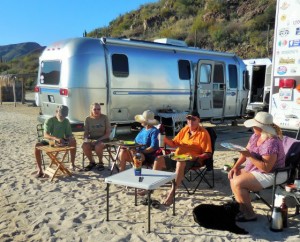
History
The National Action Party was founded in 1939 by Manuel Gómez Morín, who had held a number of important government posts in the 1920s and 1930s. He saw the need for the creation a permanent political party rather than an ephemeral organization to oppose the expansion of power by the post-revolutionary Mexican state. When Gómez Morín was rector of (UNAM) in 1933-35, the government attempted to impose socialist education. In defending academic freedom, Gómez Morín forged connections with individuals and groups that later came together in the foundation of the PAN in September 1939. The Jesuit student organization, Unión Nacional de Estudiantes Católicos, provided a well-organized network of adherents who successfully fought the imposition of a particular ideological view by the state. Gómez Morín was not himself a militant Catholic, but he was a devout believer who rejected liberalism and individualism. In 1939, Gómez Morín and a significant number of UNEC’s leadership came together to found the PAN. The PAN’s first executive committee and committees on political action and doctrine also had former Catholic student activists, including Luis Calderón Vega, the father of Felipe Calderón, who was elected President of Mexico in 2006. The PAN’s “Doctrine of National Action” was strongly influenced by Catholic social doctrine articulated in Rerum novarum (1891) and Quadragesimo anno (1931) and rejected Marxist models of class warfare. The PAN’s newspaper, La Nación was founded by another former UNEC member, Carlos Séptien García.
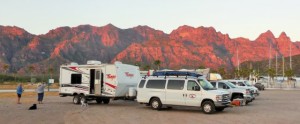
Efraín González Luna, a former member of the Mexican Catholic Student Union (Unión Nacional de Estudiantes Católicos) (UNEC), a long-time militant Catholic and practicing lawyer from Guadalajara, helped broker the party’s informal alliance with the Catholic Church. The relationship between the PAN and the Catholic Church was not without tension. The party’s founder Gómez Morín was leery of clerical oversight of the party, although its members were mainly urban Catholic professionals and businessmen. For its part, the Church hierarchy did not want to identify itself with a particular political party, since the Constitution of 1917 forbade it. In the 1950, the PAN, which had been seen to be Catholic in its makeup, became more ideologically more secular.
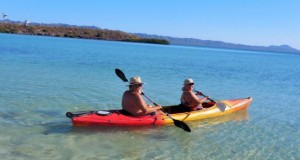
The PAN initially was a party of “civic example”, an independent loyal opposition that generally did not win elections at any level. However, in the 1980s it began a transformation to a political power, beginning at the local and state levels in the North of Mexico. A split in the PAN occurred in 1977, with the pro-Catholic faction and the more secular wing splitting. The PAN had updated its positions following Vatican II, toward a greater affinity for the poor; however, more traditional Catholics were critical of that stance and nonreligious groups were also in opposition, since they wanted the party to be less explicitly Catholic and draw in more urban professionals and business groups, who would vote for a nonreligious opposition party. The conflict came to a head and in 1977, and the progressive Catholic wing left the party. The party ran no presidential candidate in 1976.

The PAN had strength in Northern Mexico and its candidates had won elections earlier on, but these victories were small in comparison to those of the Institutional Revolutionary Party. In 1946, PAN members Miguel Ramírez Munguía (Tacámbaro, Michoacán), Juan Gutiérrez Lascurain (Federal District), Antonio L. Rodríguez (Nuevo León) and Aquiles Elorduy García (Aguascalientes) become the first four federal deputies from the opposition in post-Revolutionary Mexico. The following year Manuel Torres Serranía, from Quiroga, Michoacán, became the party’s first municipal president and Alfonso Hernández Sánchez (from Zamora, Michoacán) its first state deputy. In 1962, Rosario Alcalá (Aguascalientes) became the first female candidate for state governor and two years later Florentina Villalobos Chaparro (Parral, Chihuahua), became the first female federal deputy. In 1967 Norma Villarreal de Zambrano (San Pedro Garza García, Nuevo León) became the first female municipal president.
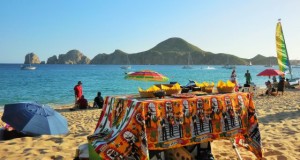
Until the 1980s, the PAN was a weak opposition party that was considered pro-Catholic and pro-business, but never garnered many votes. Its strength, however, was that it was pro-democracy and pro-rule of law, so that its political profile was in contrast to the dominant Institutional Revolutionary Party (PRI) that was widely and increasingly seen as corrupt. The PAN came to be viewed as viable opposition party for a wider range of voters as it became more secular and as Mexicans increasingly moved to cities. As the PAN increasingly called for end of fraud in Mexican elections, it appealed to a wider range of people.
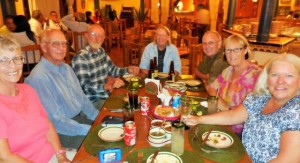
In 1988, the newly created Assembly of Representatives of the Federal District had, for the first time, members of the PAN. In 1989, Ernesto Ruffo Appel (Baja California) became the first opposition governor. Two years later, his future successor in the Baja California government, Héctor Terán Terán, became the first federal senator from the PAN. From 1992 to 2000, PAN candidates won the elections for governorships in Guanajuato, Chihuahua, Jalisco, Querétaro, Nuevo León, Aguascalientes, Yucatán and Morelos.
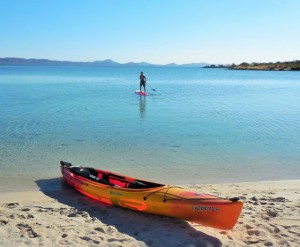
21st century
In the 2000 presidential elections, the candidate of the Alianza por el cambio (“Alliance for Change”), formed by the PAN and the Ecologist Green Party of Mexico (PVEM), Vicente Fox Quesada won 42.5% of the popular vote and was elected president of Mexico. Fox was the first opposition to candidate to defeat the candidate of the Institutional Revolutionary Party (PRI) and its precursors. It was a significant victory not only for the PAN, but Mexican democracy. In the senate elections of the same date, the Alliance won 46 out of 128 seats in the Senate. The Alliance broke off the following year and the PVEM has since participated together with the PRI in most elections.
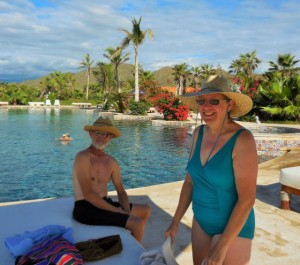
In the 2003 mid-term elections, the party won 30.74% of the popular vote and 153 out of 500 seats in the Chamber of Deputies. In 2003, the PAN lost the governorship of Nuevo León to the PRI and, the following year, failed to win back the state of Chihuahua from the PRI. Coupled with a bitterly fought election in Colima that was cancelled and later re-run, these developments were interpreted by some political analysts to be a significant rejection of the PAN in advance of the 2006 presidential election. In contrast, 2004 did see the PAN win for the first time in Tlaxcala, in a state that would not normally be considered PAN territory, although its candidate was a member of the PRI until a few months before the elections. It also managed to hold on to Querétaro (by a mere 3% margin against the PRI) and Aguascalientes (although in 2007, it lost most of the municipalities and the local Congress to the PRI). However, in 2005 the PAN lost the elections for the state government of Mexico State and Nayarit to the PRI. The former was considered one of the most important elections in the country because of the number of voters involved, which is higher than the elections for head of government of the Federal District. (See:2003 Mexican elections, 2004 Mexican elections and 2005 Mexican elections for results.)
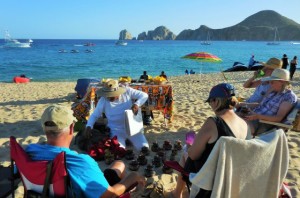
Significantly in the 2006 presidential election in 2006, the PAN candidate Felipe Calderón was elected to succeed Vicente Fox. Calderón was the son of one of the founders of the PAN, and was himself a former party president. He was selected as the PAN’s candidate, after beating his opponents Santiago Creel (Secretary of the Interior during Fox’s term) and Alberto Cárdenas (former governor of Jalisco) in every voting round in the party primaries. On July 2, 2006, Felipe Calderón secured a plurality of the votes cast. Finishing less than one percent behind was Andrés Manuel López Obrador, who challenged the results of the election on possible grounds of electoral fraud. In addition to the presidency, the PAN won 206 seats in the Chamber of Deputies and 52 in the Senate, securing it the largest single party blocs in both houses.

In 2007, the PAN lost the governorship and the majority in the state congress of Yucatán to the PRI as well as the municipal presidency of Aguascalientes, but kept both the governorship and the majority in the state congress of Baja California. The PRI also obtained more municipal presidents and local congress people in Chihuahua, Durango, Zacatecas, Aguascalientes, Chiapas and Oaxaca. The PRD obtained more posts than the PAN in Zacatecas, Chiapas and Oaxaca. In 2009, the PAN held 33 seats in the Senate and 142 seats in the Chamber of deputies. In 2012, the PAN lost the Presidential Election to Enrique Peña Nieto of the PRI. They also won 38 seats in the Senate (a gain of 3 seats), and 114 seats in the Chamber of Deputies (a loss of 28 seats).

Ideology
The PAN has been linked to a conservative stance in Mexican politics since its inception, but the party does not consider itself a fundamentally conservative party. The party ideology, at least in principle, is that of “National Action” which rejects a fundamental adherence to left- or right-wing politics or policies, instead requiring the adoption of such policies as correspond to the problems faced by the nation at any given moment. Thus both right- and left-wing policies may be considered equally carefully in formulation of national policy. (This is a similar theoretical basis as both Gaullism and Peronism, although the similarity is weakened in the late authoritarian stance of Perón.) This theory of National Action politics, rejecting a fundamental adherence to right or left, is held within a strongly Christian context, and falls under the umbrella of Christian democracy. The party theory was largely developed by early figures such as Gómez Morín and his associates. However, some observers consider the PAN claim to National Action politics to be weakened by the apparent persistent predominance of conservatism in PAN policy in practice.
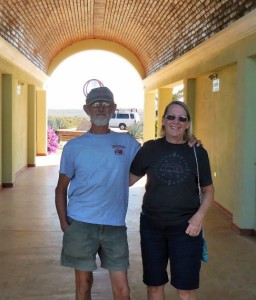
Economic policies
The PAN currently occupies the right of Mexico’s political spectrum, advocating free enterprise, Pragmatism, Small government, Privatization and Libertarianism reforms as well. Supports regulated same-sex unions but neglects Same-sex marriage and disproportionate abortion. Its philosophy has similarities with Europe’s Christian democratic parties. The PAN is a member of the Christian Democrat Organization of America. In general, PAN claims to support free enterprise and thus free trade agreements.
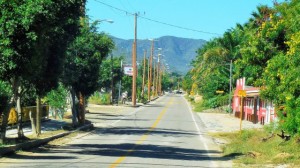
Social policies
Abortion
Carlos Abascal, secretary of the interior in the latter part of the Fox administration, called emergency contraception a “weapon of mass destruction” in July 2005. It was during Fox’s term, however, that the “morning-after” pill was legalized, even though the Church had condemned the use of these kind of pills, calling them “abortion pills”. The PAN produced a television spot against state-financed abortion, one that features popular comedian Chespirito (who was also featured on a TV spot promoting Vicente Fox in the 2000 presidential elections) and a second one that accuses the PRI and PRD of wanting to kill the unborn. After the abortion bill, which made abortion available, anonymous, and free or government-paid, was approved at the local legislature, the PAN requested the Human Rights Commission of the Federal District (CDHDF) to enact actions on the unconstitutionality of the measure, the CDHDF rejected the request as it found no basis of unconstitutionality. After unsuccessfully appealing to unconstitutionality, the PAN declared that it may request the remotion of Emilio Álvarez Icaza, the president of the Human Rights Commission of the Federal District, for his lack of moral quality. The PAN, with the members of the Association of Catholic Lawyers, gathered signatures and turned them in to the Federal District Electoral Institute (IEDF) to void the abortion bill and force a referendum, which was also rejected by the IEDF. In May 2007, the PAN started a campaign to encourage rejections to perform abortion amongst doctors in the Federal District based on conscience.
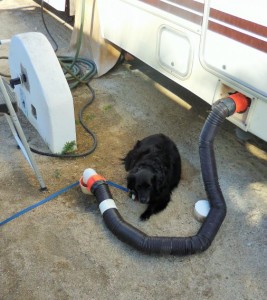
Recognition of same-sex unions in Mexico
The PAN has opposed measures to establish civil unions in Mexico City and Coahuila. On November 9, 2006, the government of the Federal District approved the first law establishing civil unions in Mexico. The members of the PAN, and a member of New Alliance were the only legislators that voted against it. The same year, the local legislature of Coahuila approved the law of civil unions to which the PAN also opposed. The PAN also lodged an unconstitutionality plea before the Supreme Court of Justice of the State of Coahuila, alleging that the constitution has vowed to protect the institution of the family. Guillermo Bustamente Manilla, a member of the PAN and the president of the National Parents Union (UNPF) is the father of Guillermo Bustamante Artasánchez, a law director of the Secretary of the Interior, Carlos Abascal, during Fox’s presidency and worked in the Calderón administration against abortion and same-sex civil unions. He called the latter as “anti-natural.” He has publicly asked voters not to cast votes for “abortionist” parties and those who are in favor of homosexual relationships.
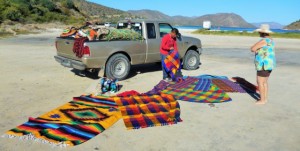
Other issues
In some cases, PAN mayors and governors have banned public employees from wearing miniskirts (Guadalajara), clamped down on the use of profanity in public marketplaces (Santiago de Querétaro), and the last and most polemical had to be with the mayor of Guanajuato, who tried to prevent couples from kissing on the streets, although this law did not pass.
